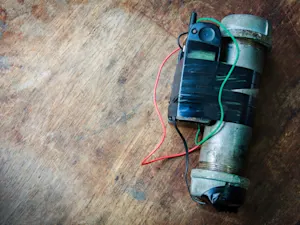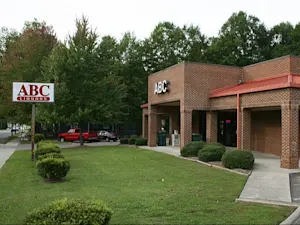
How Turkey Swapped Gas for Gold – A Twisted Tale
Imagine a scheme so intricate that it fooled the world for years, helping a nation sidestep international sanctions and move billions in gold under the radar. This isn't the plot of a heist movie — it's a real-life operation that occurred between Turkey and Iran, known as the "Gas for Gold" scheme. It all began with a simple idea: Swap gas for gold. But behind this simple exchange lays a web of corruption, bribes, and international intrigue. Let's take a closer look at the high price of this golden shortcut.
How did the 'Gas for Gold' scheme work?
The "Gas for Gold" scheme was a clever workaround that allowed Iran to dodge international sanctions. Here's how it went down:
- First, Iran sold its natural gas and oil to Turkey. But because of sanctions, Iran couldn't receive payment in dollars or euros.
- So, Turkey deposited the payment into accounts at Halkbank, a state-owned bank.
- Instead of taking cash, Iran used these funds to buy gold in Turkey.
- This gold then traveled to Iran, either directly or through the United Arab Emirates, giving Iran a way to get around the financial restrictions imposed by the United States and other countries.
Pretty clever, and it worked — until it didn't.
What happened when?
Before we get into the details of this scheme, let's take a quick look at the timeline of how and when this all played out:
- March 2012: Gold exports from Turkey to Iran take off, ramping up in scale.
- July 2012: The Obama administration tightens sanctions on Iran's precious metals trade, but Turkey exploits a loophole.
- January 2013: U.S. Congress passes legislation to close the "golden loophole" — but delays implementation for six months.
- July 1, 2013: New U.S. sanctions take effect, officially ending the gold trade.
- December 2013: Turkish authorities uncover the scandal, implicating government officials in a widespread corruption scheme.
- 2016: Turkish-Iranian businessman Reza Zarrab, the scheme's mastermind, gets arrested in the United States.
- 2017: Zarrab pleads guilty and spills the beans in a U.S. courtroom, revealing the extent of the operation.
How did the scheme get exposed?
The jig was up in December 2013 when Turkish police raided homes connected to the ruling elite. They discovered a staggering $17.5 million cash in U.S. dollars, hidden away. In the house of Halkbank's director, Süleyman Aslan, they found $4.5 million. Another $750,000 lay tucked in the residence of Baris Guler, son of the former Turkish interior minister.
Whistleblowers claimed more high-profile names were involved, including Bilal Erdoğan, son of then Prime Minister (now President) Recep Tayyip Erdoğan. Audio recordings surfaced online, allegedly capturing Erdoğan advising his son to dispose of tens of millions of dollars. Erdoğan dismissed these recordings as fake, but experts had their doubts.
What role did Halkbank play?
Halkbank wasn't just a bit player in this drama — it took center stage. The state-owned bank facilitated the entire operation, handling payments from Turkey's energy purchases. The bank took advantage of a loophole in the U.S. sanctions that allowed gold transfers to private entities in Iran. This clever exploit allowed the scheme to continue even after the United States tightened sanctions in 2012. Prosecutors alleged Halkbank helped move about $20 billion worth of restricted Iranian funds through the scheme.
Who was Reza Zarrab, and what was his role?
Reza Zarrab masterminded the "Gas for Gold" scheme, making him a key figure in this high-stakes operation. He coordinated the transactions and arranged the flow of gold from Turkey to Iran, using loopholes to keep the operation running smoothly.
Zarrab didn't work alone — he allegedly bribed Turkish officials to keep the gears turning. His network of couriers physically transported the gold, ensuring it reached its destination. In 2016, U.S. authorities arrested Zarrab, and in 2017, he spilled everything in court, admitting to the gold smuggling and implicating top Turkish officials, including Erdoğan.
How did the 'Gas for Gold' scheme impact Turkey?
The "Gas for Gold" scheme gave Turkey a temporary economic boost, inflating its export numbers and making the economy appear stronger than it was. However, it also came at a price. The scandal tarnished the international reputation of the Turkish banking sector and strained relations with the United States. As the scandal unfolded, the Turkish lira took a hit, and investor confidence wavered. The scheme exposed a level of corruption that shook the foundations of Turkey's political and financial systems.
What's left after the gold dust settles?
The "Gas for Gold" scheme reads like a gripping thriller, but its consequences were all too real. It showcased how a nation could exploit international loopholes, revealing a deep-seated corruption within Turkey's ruling elite. While the operation provided a quick economic lift, it left a legacy of distrust and suspicion, both within Turkey and on the global stage.
References: Turkey: "Gas for Gold" Scheme | Iran's Turkish Gold Rush | 'The Government Is In on It': An Insider's Account of the Reza Zarrab Conspiracy | How Iran Benefits From an Illicit Gold Trade With Turkey | The Government Is in on It': An Insider's Account of the Reza Zarrab Conspiracy | The Anatomy of Turkey's "Gas-For Gold" Scheme with Iran | Why Turkey cares about the trial of Reza Zarrab | The Case of Reza Zarrab























